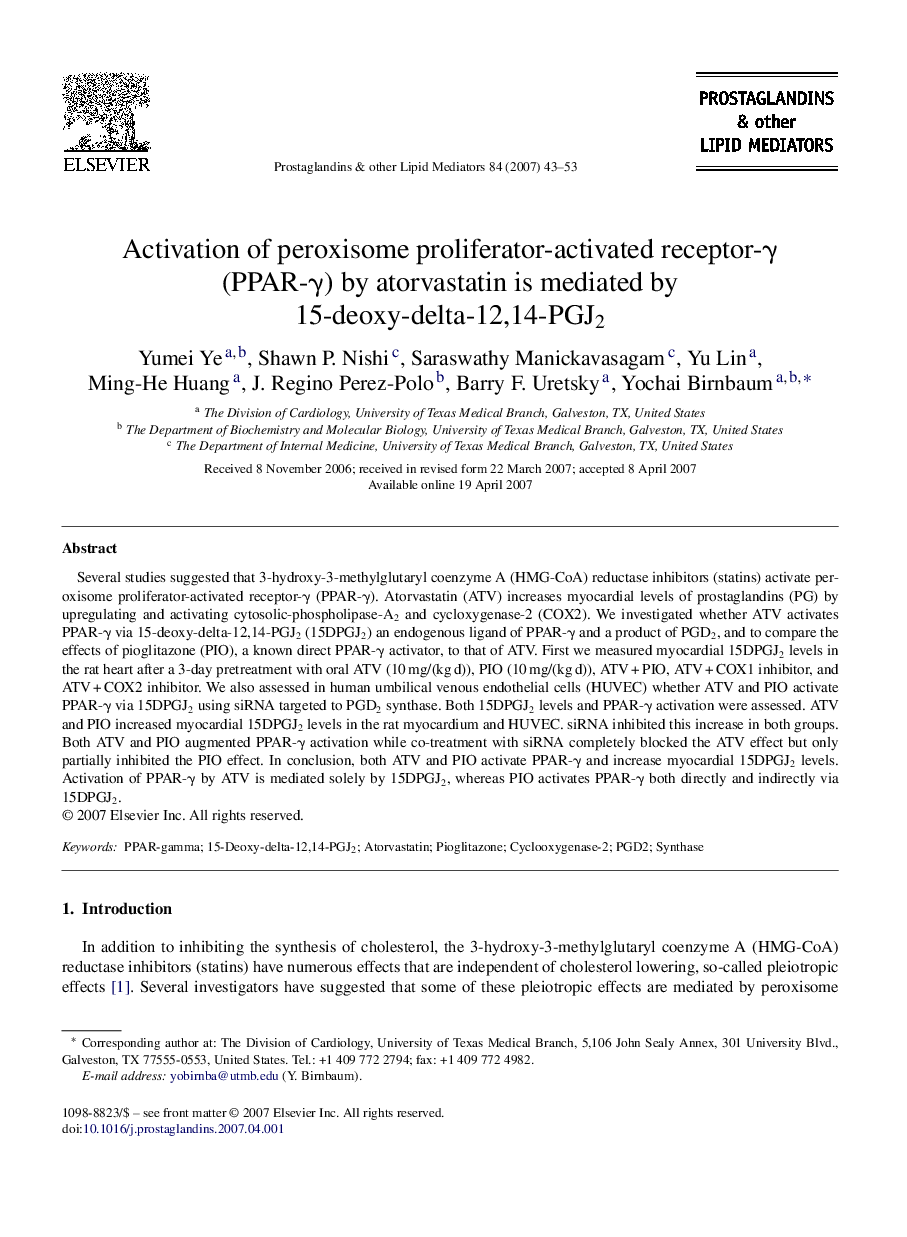| Article ID | Journal | Published Year | Pages | File Type |
|---|---|---|---|---|
| 2019925 | Prostaglandins & Other Lipid Mediators | 2007 | 11 Pages |
Abstract
Several studies suggested that 3-hydroxy-3-methylglutaryl coenzyme A (HMG-CoA) reductase inhibitors (statins) activate peroxisome proliferator-activated receptor-γ (PPAR-γ). Atorvastatin (ATV) increases myocardial levels of prostaglandins (PG) by upregulating and activating cytosolic-phospholipase-A2 and cycloxygenase-2 (COX2). We investigated whether ATV activates PPAR-γ via 15-deoxy-delta-12,14-PGJ2 (15DPGJ2) an endogenous ligand of PPAR-γ and a product of PGD2, and to compare the effects of pioglitazone (PIO), a known direct PPAR-γ activator, to that of ATV. First we measured myocardial 15DPGJ2 levels in the rat heart after a 3-day pretreatment with oral ATV (10 mg/(kg d)), PIO (10 mg/(kg d)), ATV + PIO, ATV + COX1 inhibitor, and ATV + COX2 inhibitor. We also assessed in human umbilical venous endothelial cells (HUVEC) whether ATV and PIO activate PPAR-γ via 15DPGJ2 using siRNA targeted to PGD2 synthase. Both 15DPGJ2 levels and PPAR-γ activation were assessed. ATV and PIO increased myocardial 15DPGJ2 levels in the rat myocardium and HUVEC. siRNA inhibited this increase in both groups. Both ATV and PIO augmented PPAR-γ activation while co-treatment with siRNA completely blocked the ATV effect but only partially inhibited the PIO effect. In conclusion, both ATV and PIO activate PPAR-γ and increase myocardial 15DPGJ2 levels. Activation of PPAR-γ by ATV is mediated solely by 15DPGJ2, whereas PIO activates PPAR-γ both directly and indirectly via 15DPGJ2.
Related Topics
Life Sciences
Biochemistry, Genetics and Molecular Biology
Biochemistry
Authors
Yumei Ye, Shawn P. Nishi, Saraswathy Manickavasagam, Yu Lin, Ming-He Huang, J. Regino Perez-Polo, Barry F. Uretsky, Yochai Birnbaum,
